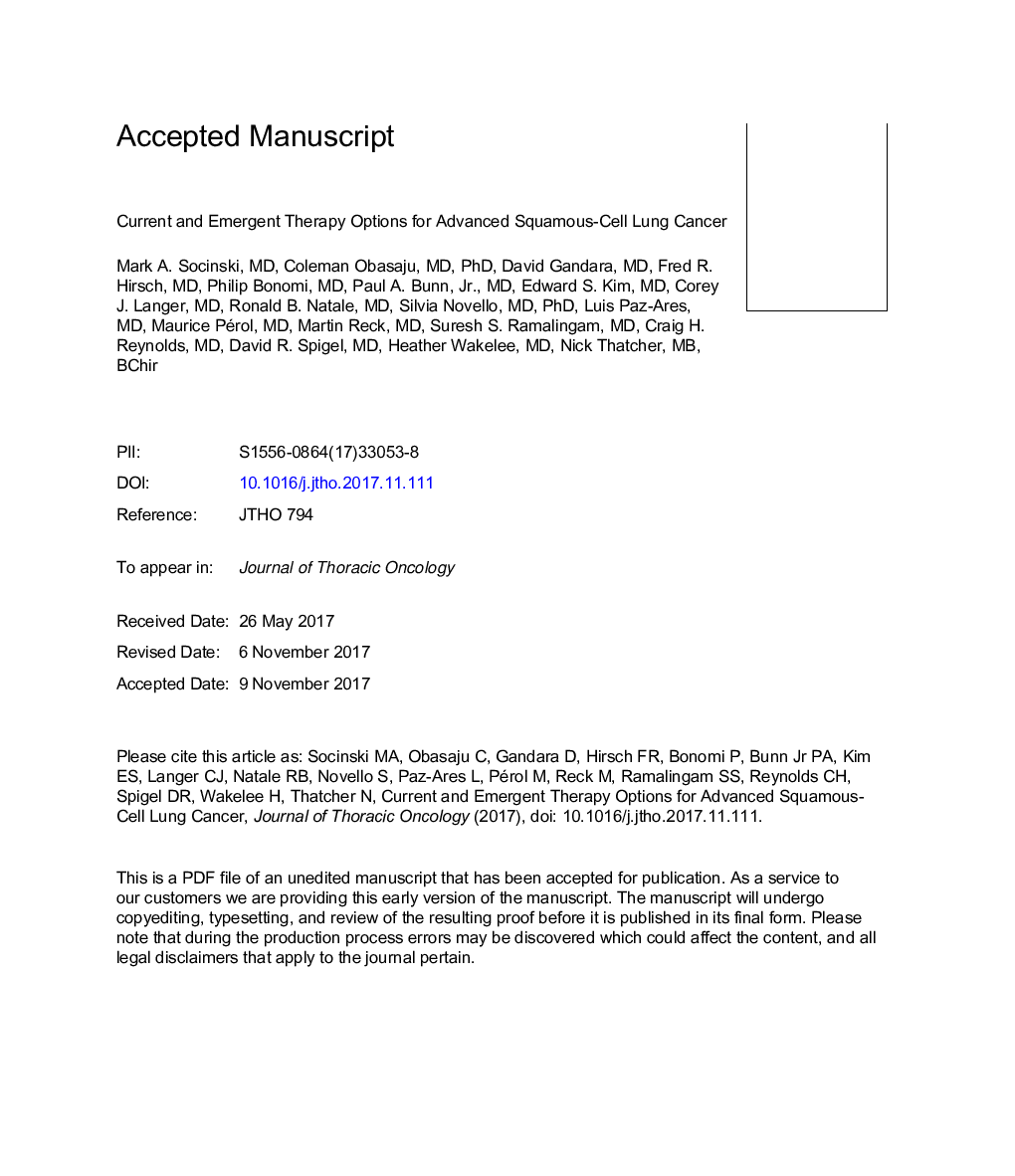| Article ID | Journal | Published Year | Pages | File Type |
|---|---|---|---|---|
| 8787801 | Journal of Thoracic Oncology | 2018 | 61 Pages |
Abstract
Squamous cell lung cancer (SqCLC) is a distinct histologic subtype of NSCLC that is challenging to treat because of specific clinicopathologic characteristics, which include older age, advanced disease at diagnosis, comorbid diseases, and the central location of tumors. These characteristics have a bearing on treatment outcomes in advanced SqCLC, resulting in a median survival approximately 30% shorter than for patients with other NSCLC subtypes. In the context of the specific features of SqCLC, we review challenges of treating SqCLC and the current guideline-recommended treatments for advanced (metastatic) SqCLC in different patient subpopulations. We also evaluate recently approved treatment options, including necitumumab, afatinib, nivolumab, pembrolizumab, and atezolizumab; discuss the survival benefits associated with each agent in the advanced SqCLC population; and propose a treatment algorithm incorporating these agents for this challenging-to-treat disease. Lastly, we review the preliminary clinical evidence for immunotherapy agents in development for advanced NSCLC.
Related Topics
Health Sciences
Medicine and Dentistry
Oncology
Authors
Mark A. MD, Coleman MD, PhD, David MD, Fred R. MD, Philip MD, Paul A. MD, Edward S. MD, Corey J. MD, Ronald B. MD, Silvia MD, PhD, Luis MD, Maurice MD, Martin MD, Suresh S. MD, Craig H. MD, David R. MD, Heather MD, Nick MB, BChir,
